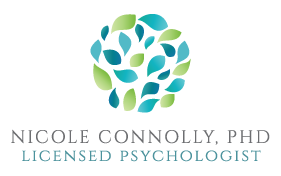Mindfulness Meditation: A Quick Guide
As Mental Health Awareness Month continues, the Your Mind, Your Body blog by the American Psychological Association is hosting a mental health blogging day today to continue to raise awareness of mental health needs in our society.
Given the focus this month on improving mental health, it seemed like a good opportunity to discuss one of my favorite relaxation strategies - mindfulness meditation.
I often recommend this technique for reducing stress and managing difficult emotions. Having several tools for fighting stress and mood swings is helpful for daily life for everyone, not just those with diagnosed mental health concerns.
What Is Mindfulness Meditation?
Mindfulness meditation is a relaxation technique that emphasizes focusing your attention and awareness on sensations in the present. When you consider that most people who are feeling stressed, anxious, or depressed are spending much of their time focusing either on bad things that have happened in the past or on negative things that may happen in the future, mindfulness provides an opportunity to disconnect from those negative thoughts and re-center yourself in the present.
As a practice, mindfulness meditation originally had its roots in Buddhist meditation practices. Over the past 20-30 years, psychologists have become increasingly interested in the health benefits of meditation. Particularly in the last 10 years, mindfulness meditation techniques have been removed from their religious context and used in many different types of psychological treatments to help relieve pain and suffering.
The research on mindfulness meditation is also very promising. Treatments incorporating mindfulness strategies have been shown to be effective for problems such as anxiety, depression, chronic pain, borderline personality disorder, among others. Recent neurological research has also shown that engaging in regular meditation practices can have positive effects on the structure and function of the brain.
How Do I Get Started?
There are several great ways to get started with incorporating mindfulness practices into your daily life. All you need is a quiet spot and a few minutes to yourself to begin trying this strategy.
One of the simplest ways to begin practicing is to do a basic breathing exercise:
Find a comfortable spot and sit in a relaxed position. I find that sitting on a chair with your feet on the floor and arms relaxed at your sides is one of the better positions, but it's all about what works for you.
Close your eyes and turn your awareness to your breathing. Notice how each breath feels as you breathe in through your nose and out through your mouth. If it helps you focus, you can count to 5 as you breathe in, hold for a count of 5, and then count to 5 again as you breathe out. Your breaths should be long and slow for maximum relaxation.
If your mind wanders while doing the exercise, notice and acknowledge the shift in attention and then shift your awareness back to your breath.
I often recommend that individuals try practicing these techniques on a regular basis to see improvements. If you enjoy the breathing exercise or want to try more, there are a variety of different ways to practice mindfulness meditation.
Some of my favorites include:
5 Senses Meditation - Relax and go through each of the five senses (sound, touch, taste, smell, sight), just noticing what is in the environment around you.
Mindful eating - While eating a meal or snack, pay close attention to each bite, noticing the taste, smell, texture, and other features of the food. Concentrate solely on the act of eating.
Body Scan Meditation - Starting with the top of your head, focus your awareness on your body, slowly moving down your body to your feet. When you find spots of tension, imagine the tension melting away.
Where Can I Learn More?
If you are interested in learning more about this technique, there are many fantastic resources available.Jon Kabat-Zinn is largely credited with introducing mindfulness meditation techniques to American mental health practitioners. Since the late 1970s, he has written several excellent books on mindfulness and produces CDs with exercises to practice. Some of his best-known works include:
Mindfulness for Beginners: Reclaiming the Present Moment--and Your Life*
Full Catastrophe Living: Using the Wisdom of Your Body and Mind to Face Stress, Pain, and Illness*
Practice CDs are available directly through his website at http://mindfulnesscds.com/.
Several excellent guided mindfulness meditation exercises are also available for free online through http://www.allaboutdepression.com/relax.
How Does This Fit with My Religious Practices?
One of the biggest concerns I hear from clients who are starting out with mindfulness meditation is about how these techniques fit with their own religious beliefs. Because these techniques were originally adapted from Buddhist practices, many people incorrectly assume that there is a strong element of Buddhist practice in them. I find this concern to be particularly prominent among Christians.
In reality, these techniques are separate from Buddhist religious practices and can be done either by themselves in a secular fashion or incorporating Christian (or other religious) beliefs. There is a great article on mindfulness from a Christian perspective at www.mindandsoul.info.
If you have a particular religious faith, you may wish to try incorporating favorite scriptures or teachings of your church into your meditation practices. Alternately, certain scriptures lend themselves well to visualizations (e.g. Psalm 23). More ideas are available from MindsetMatters.
Overall, mindfulness meditation can be a very powerful and very beneficial technique for managing the difficult emotions and stress that overwhelm all of us from time to time.
If you find yourself struggling to manage your feelings from day to day or find that you are frequently overwhelmed by your depressed mood or anxiety, then speaking with a licensed mental health professional may be helpful. A psychologist or other mental health counselor can help you maximize your benefit from techniques such as mindfulness meditation and help set you firmly on a path to improved mental health.
